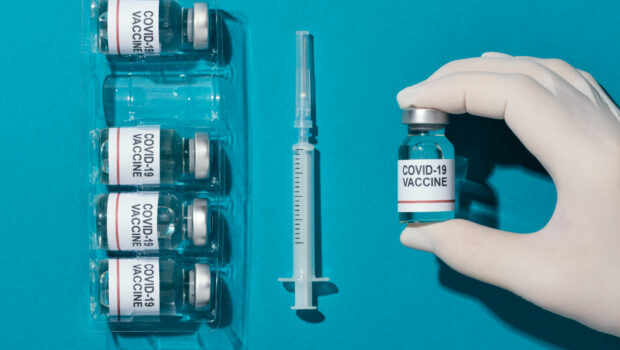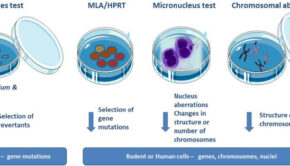How Cold Storage is Crucial to COVID-19 Vaccine Distribution?
Almost a year into the Covid-19 pandemic, some 13 vaccines are under the large-scale efficacy testing stage. It has been possible only because of some outstanding research done by scientists during the pandemic. For now, vaccines seem to be the last-ditch effort for protecting humanity from the deadly coronavirus as countries fail to bring it under control.
In the last couple of weeks, companies like AstraZeneca, Moderna and Pfizer have produced successful results from the large-scale vaccine trials, showing some glimmer of hope to end this global suffering.
Pfizer was the first pharma company to announce the vaccine on November 9 officially, and they claimed their vaccine candidate was 90% effective in late-stage human trials. A couple of days later, Moderna too announced its vaccine candidate to be 94.5% effective, while Russia’s Sputnik V also reported 92% potency in the trials.
These are all interim results, and the figures may change in the upcoming trials. The regulators, too, will scrutinise these results for several days after the company seeks early approval. Nonetheless, these vaccines are all set for getting full approval in several countries any time from now.
Still, the greatest challenge now is the safe storage and transportation of these highly sensitive vaccines.
A Vaccine is a Blessing Best Served Cold
In living organisms, most of the biological functions are carried out effectively at certain fixed temperatures. Likewise, vaccines that incorporate weakened or inactive viruses or specific m RNA sequences need to be stored in cold temperatures. It ensures that they are not ripped apart before entering the body.
Developers utilize frozen settings to keep the vaccine active, intact, and useful for a more extended period. Hence, each vaccine needs different levels of freezing storage temperatures right from manufacturing until it is administered.
Despite the vaccine being made from the same technology as Pfizer and Moderna, the vaccines may need different temperature settings based on their formulation.
It is essential to know that if the vaccines’ optimal temperature is not maintained, their ability to create an immune response may rapidly decline. Therefore, these vaccines need to be stored in a special refrigerator called Ultra-Low Temperature Freezer, capable of storing contents up to -70°C. These refrigerators are far more superior to the standard freezers used in healthcare centres.
Temperature Range of Major COVID 19 Vaccines
Among all the vaccines in the race to put a full stop to this pandemic, Pfizer and BioNtech vaccine storage seems to be the most arduous in storage requirements. The vaccine candidate requires a temperature as low as -70°C for maintaining its potency. It is why there is a need for the ultra-low temperature freezers right now.
If you were to look at other vaccines like Moderna and Sputnik, it needs cold storage up to -20°C. Amongst all, Oxford-AstraZeneca is the most suited one for the countries in the sub-continent as it requires average fridge temperatures of -2°C to 8°C. It means that the vaccine can be easily distributed and administered to people using the existing infrastructure in most countries, which is excellent news.
Even though all three vaccines have given outstanding results in their last stage trials, some critical questions still need to be addressed. Let us see some of them
1. How Long the Vaccines Will Be Effective?
Studies have shown that the antibodies after the Covid 19 vaccines will last for three months, but the upper limit is unknown yet as these vaccines have only been administered for a few months.
As per several medical experts, antibodies of these vaccines can wane over just under three months, and one cannot write off the possibility of reinfection. Experts suggest that if vaccine immunity behaves like natural immunity, then it’s likely that people shall get it every year like a flu shot.
2. Will the Vaccine Be Safe as It is being Introduced in a Short Period?
As the vaccines are tested and introduced in a brief time to the masses, many people have concerns over their safety. However, there is nothing to fear about it, as countries will administer vaccines only after the regulatory bodies thoroughly test them. The concerned authorities will check all the parameters regarding the vaccine’s safety, and then only will the administration happen.
3. If Someone Is Vaccinated, Can They Spread the Virus?
It is still quite early to know that the vaccines being designed only protect against disease or infections. If the vaccine can protect us from infection, it means we won’t be spreading the infections to others, given that we are vaccinated. However, we will only know about this when enough data comes after analysing the vaccine’s efficacy in people.
Conclusion
We have seen how cold storage plays a crucial role in keeping the vaccine alive for immunizing billions of people across the globe. Hopefully, all the government bodies and healthcare centres can pull this colossal task of beating the pandemic, which has been a nightmare for all people. May this new year present us with the great news we all are waiting for; the end of COVID 19.
Cover Image by Freepik
















